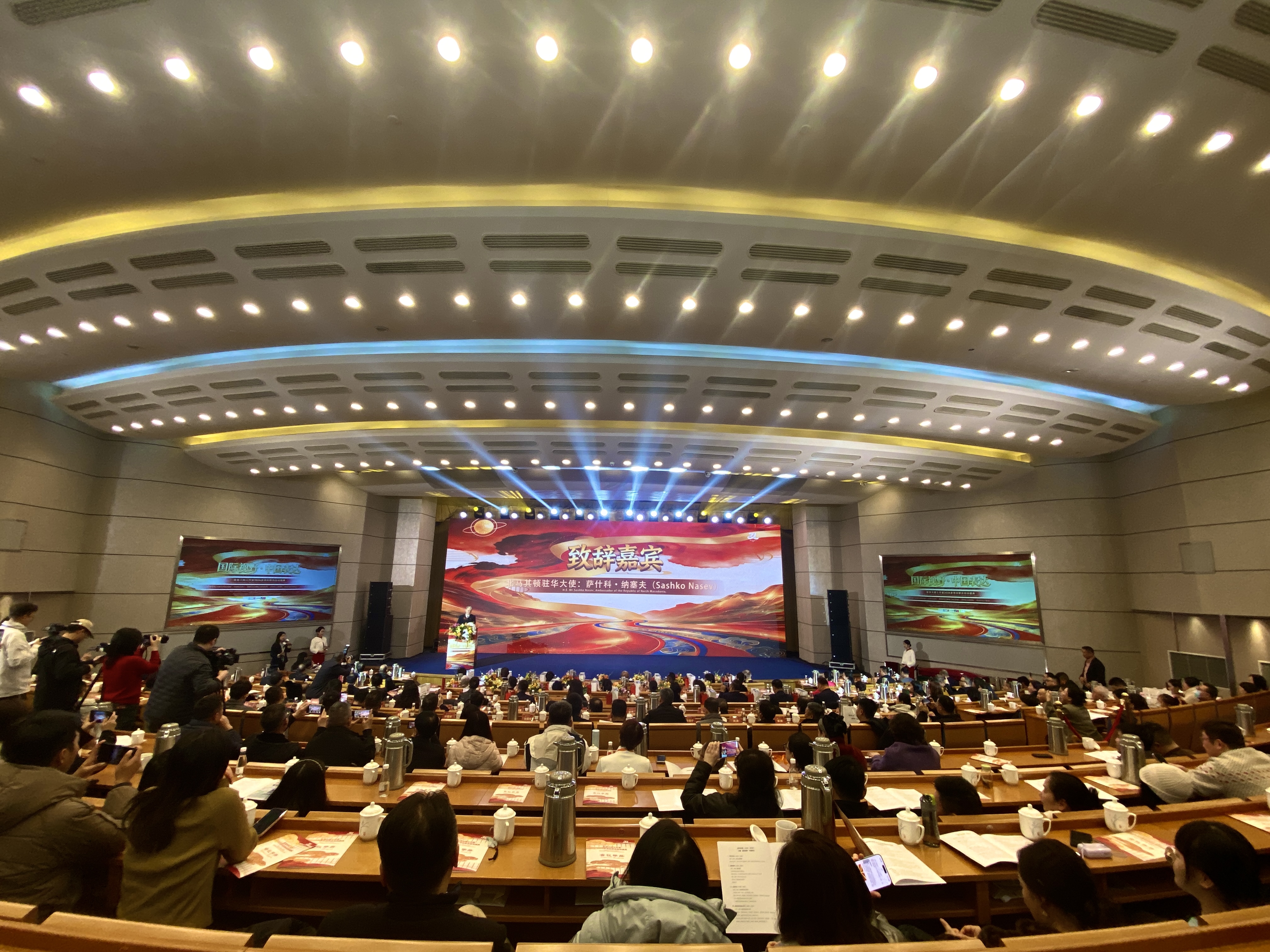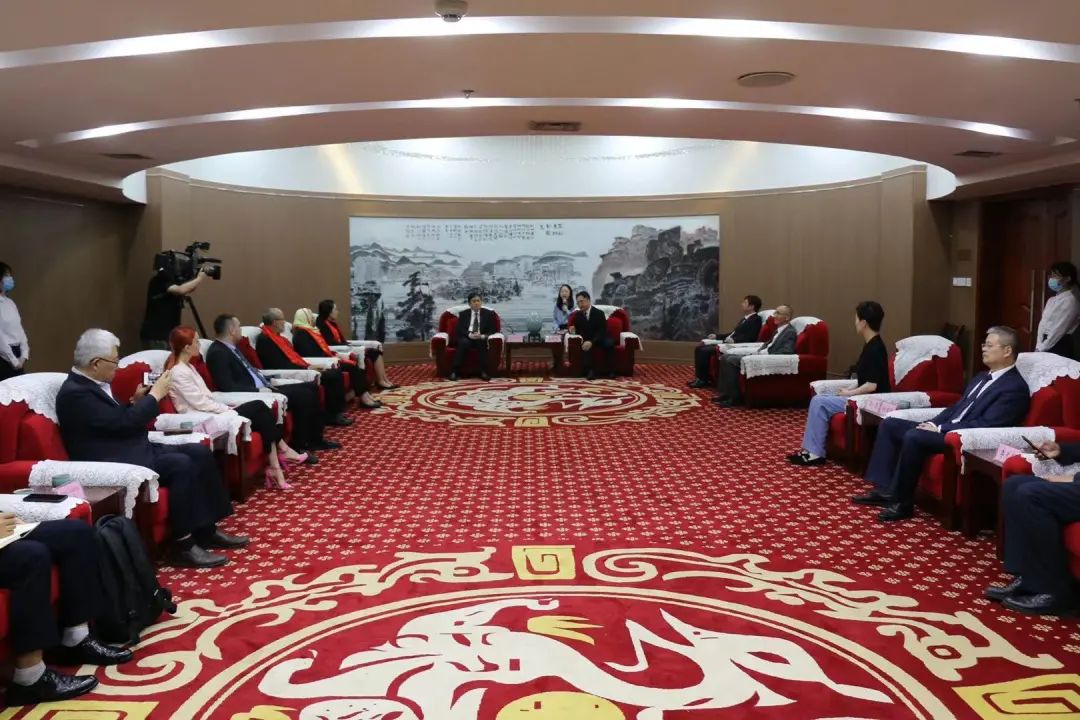Australia Struggles to Find an Independent Voice
来源:
作者:James O’Neill* 点击:
发布时间:2021-04-08 15:18:13
澳大利亚一直在努力向世界展示独立的外交政策。例如,在19世纪中叶,英国在澳大利亚进行殖民的早期时间里,澳大利亚的士兵参加了克里米亚战争(Crimean War),尽管无法确定澳大利亚在这场战争中能获得利益。在第一次世界大战中,人们同样愿意为大英帝国而死。迄今为止,澳大利亚历法中最庄严的日子是4月25日,即澳新军团日。这是纪念在第一次世界大战期间,澳大利亚和新西兰军队在现土耳其境内的一场毫无希望的战役中被无能的英国军官而牺牲。
在第二次世界大战期间,当澳大利亚军队被紧急派往北非对抗隆美尔的沙漠军队时,同样的故事重复上演。在日本袭击珍珠港之后,他们才撤出战区,当时在欧洲战争中保卫本土的力量超过了保卫英国的力量。
日本占领新加坡的事件对澳大利亚的军事战略上产生了深远的影响。最重要的是他们意识到自己的安全不能再依赖于英国。澳大利亚并没有制定适用于本国的防御计划,而是把效忠英国转变为了效忠美国。直至今天,澳大利亚及其两党事务依旧效忠于美国,两个主要政党都发誓永远效忠于美国。
从效忠英国到参与英国的战争,没有改变的是,澳大利亚将这种密切关系转移到美国,即让美国加入到他们的战争中,不论这样做是否会获得利益。
因此,当澳大利亚加入朝鲜战争后,它便是第二次世界大战后美国帝国主义的积极参与者。澳大利亚军队后来加入了对朝鲜的入侵,这违反了授权这场战争的的联合国决议的条款。当西方军队到达朝鲜-中国边界时,中国军队加入了战争,他们很快被驱逐回朝鲜半岛南部。
众所周知,美国利用他们的空中优势来轰炸朝鲜,直到1953年停战协议最终签署。在那次空战中,朝鲜的每个城市都遭受了严重的破坏。直到今天,由于尚未签署任何和平条约,从技术上讲,这场战争仍在继续。
1965年,澳大利亚军队抵达越南南部,并在那里驻扎直到1973年1月,他们被惠特拉姆工党政府撤回。惠特兰政府撤出澳大利亚军队的决定激怒了美国,因为澳大利亚军队代表美国驻扎南越。
下一个误判是澳大利亚加入了由美国领导的阿富汗战争。这场战争在很大程度上已经被主流媒体忽视。然而在2020年末,澳大利亚军队参与了在阿富汗的战争罪行,特别是杀害无辜的阿富汗平民的这一事件被揭露出来。
澳大利亚又一次代表美国进行对外干预是在2003年对伊拉克的非法入侵。他们完全无视伊拉克政府在2020年提出的要求,即要求政府终止外国军队在伊拉克的军事存在。
澳大利亚还通过位于北领地松树谷的卫星设施在美国战争机器中发挥作用。该基地是美国在该国的若干军事设施之一,这是主流媒体认为不适合公开讨论的另一个问题。
澳大利亚海军的另一个鲜为人知的角色是参与了美国在中国南海与中国的对抗。尽管完全没有任何证据表明中国干涉了这些水域的民航,他们却在那里进行所谓的航行自由演习的保护。同样无法解释的是,澳大利亚海军出现在狭窄的马六甲海峡,这是中国至关重要的出口航道。
去年,特朗普政府复活了“四人帮”,即印度、日本、美国和澳大利亚。这是一个公然反华的组织,旨在向印度太平洋地区的中国政府施加压力。该决策注定要失败,因为印度和日本是亚太地区多个国家之间蓬勃发展的贸易合作的一部分,拥有更具吸引力的机会。这些国家认为,与美国人提出的公然对抗的选择相比,与中国建立友好关系能带来更好的机会。
澳大利亚似乎对这些无动于衷。它与中国的贸易已经遭受了重大打击,更不用说外交冷漠了。政治领导层对这一事态发展保持沉默,也许是无法掌握其与中国关系变化的影响。工党反对党无法掌握澳大利亚紧抓美国日渐衰落的尾巴所带来的后果,这是值得深切关注的问题。
所有迹象都表明,澳大利亚与其最大贸易伙伴的关系将继续大幅度恶化。而澳大利亚似乎无法或不愿接受这样的教训,即其经济问题与美国的屈从作用密切相关。
种种迹象表明,他们在亚洲的财富将一起缩水。
在第二次世界大战期间,当澳大利亚军队被紧急派往北非对抗隆美尔的沙漠军队时,同样的故事重复上演。在日本袭击珍珠港之后,他们才撤出战区,当时在欧洲战争中保卫本土的力量超过了保卫英国的力量。
日本占领新加坡的事件对澳大利亚的军事战略上产生了深远的影响。最重要的是他们意识到自己的安全不能再依赖于英国。澳大利亚并没有制定适用于本国的防御计划,而是把效忠英国转变为了效忠美国。直至今天,澳大利亚及其两党事务依旧效忠于美国,两个主要政党都发誓永远效忠于美国。
从效忠英国到参与英国的战争,没有改变的是,澳大利亚将这种密切关系转移到美国,即让美国加入到他们的战争中,不论这样做是否会获得利益。
因此,当澳大利亚加入朝鲜战争后,它便是第二次世界大战后美国帝国主义的积极参与者。澳大利亚军队后来加入了对朝鲜的入侵,这违反了授权这场战争的的联合国决议的条款。当西方军队到达朝鲜-中国边界时,中国军队加入了战争,他们很快被驱逐回朝鲜半岛南部。
众所周知,美国利用他们的空中优势来轰炸朝鲜,直到1953年停战协议最终签署。在那次空战中,朝鲜的每个城市都遭受了严重的破坏。直到今天,由于尚未签署任何和平条约,从技术上讲,这场战争仍在继续。
1965年,澳大利亚军队抵达越南南部,并在那里驻扎直到1973年1月,他们被惠特拉姆工党政府撤回。惠特兰政府撤出澳大利亚军队的决定激怒了美国,因为澳大利亚军队代表美国驻扎南越。
下一个误判是澳大利亚加入了由美国领导的阿富汗战争。这场战争在很大程度上已经被主流媒体忽视。然而在2020年末,澳大利亚军队参与了在阿富汗的战争罪行,特别是杀害无辜的阿富汗平民的这一事件被揭露出来。
澳大利亚又一次代表美国进行对外干预是在2003年对伊拉克的非法入侵。他们完全无视伊拉克政府在2020年提出的要求,即要求政府终止外国军队在伊拉克的军事存在。
澳大利亚还通过位于北领地松树谷的卫星设施在美国战争机器中发挥作用。该基地是美国在该国的若干军事设施之一,这是主流媒体认为不适合公开讨论的另一个问题。
澳大利亚海军的另一个鲜为人知的角色是参与了美国在中国南海与中国的对抗。尽管完全没有任何证据表明中国干涉了这些水域的民航,他们却在那里进行所谓的航行自由演习的保护。同样无法解释的是,澳大利亚海军出现在狭窄的马六甲海峡,这是中国至关重要的出口航道。
去年,特朗普政府复活了“四人帮”,即印度、日本、美国和澳大利亚。这是一个公然反华的组织,旨在向印度太平洋地区的中国政府施加压力。该决策注定要失败,因为印度和日本是亚太地区多个国家之间蓬勃发展的贸易合作的一部分,拥有更具吸引力的机会。这些国家认为,与美国人提出的公然对抗的选择相比,与中国建立友好关系能带来更好的机会。
澳大利亚似乎对这些无动于衷。它与中国的贸易已经遭受了重大打击,更不用说外交冷漠了。政治领导层对这一事态发展保持沉默,也许是无法掌握其与中国关系变化的影响。工党反对党无法掌握澳大利亚紧抓美国日渐衰落的尾巴所带来的后果,这是值得深切关注的问题。
所有迹象都表明,澳大利亚与其最大贸易伙伴的关系将继续大幅度恶化。而澳大利亚似乎无法或不愿接受这样的教训,即其经济问题与美国的屈从作用密切相关。
种种迹象表明,他们在亚洲的财富将一起缩水。
Australia has always struggled to present an independent foreign policy to the world. For example, during its early days as a British colony its soldiers fought in the Crimean war in the mid 19th century, although it would be impossible to identify any Australian interest in that conflict. World War One saw a similar eagerness to die on behalf of the British Empire. To this day the most solemn day in the Australian calendar is 25th April, ANZAC Day, when Australian and New Zealand troops were sacrificed by their incompetent British officers to a hopeless campaign in Turkey during World War One.
The same saga was repeated during World War II when Australian troops were rushed to North Africa to fight Rommel’s desert army. They were only withdrawn from that theatre following the Japanese attack on Pearl Harbor, when defending home territory from the Japanese superseded defending Britain in its European war.
The fall of Singapore to the Japanese had a profound effect on Australian military thinking. Foremost was the realisation that they could no longer rely on Britain for their safety. Rather than formulating a plan for having a uniquely Australian tinge to their defence, Australia simply switched its allegiance from the British to the Americans. That allegiance has continued to the present day and is essentially a bipartisan affair, with both the major political parties swearing undying allegiance to the Americans.
What did not change from the days of allegiance to a participation in Britain’s wars, was an affinity simply transferred to the Americans to join their wars, regardless of the merits, military or otherwise, of doing so.
Thus Australia was an eager participant in the first post-World War II exercise in American imperialism when it joined the war in Korea. Australian troops later joined in the invasion of North Korea, contrary to the terms of the United Nations resolution authorising the conflict. After the Chinese joined the war when the western forces reached the North Korea – China border, they were quickly expelled back to the southern portion of the Korean peninsula.
As is well known, the Americans used their aerial domination to bomb the North until the armistice was finally signed in 1953. During that air war every city in the North suffered severe damage.To this day the war remains technically alive as no peace treaty has been signed.
In 1965 Australian troops arrived in South Vietnam and remained there until January 1973 when they were withdrawn by the Whitlam Labor government. The withdrawal of Australian troops by the Whitlam government incensed the Americans, on whose behalf they were there.
The next miscalculation was Australia joining the United States led war in Afghanistan. It is a war that has largely passed out of mainstream media discussion. This ignorance was briefly disrupted by revelations in late 2020 that Australian troops had been involved in war crimes in Afghanistan, specifically, the killing of innocent Afghanistan civilians.
Australia’s next foreign intervention on behalf of the Americans was in the equally illegal invasion of Iraq in 2003. They have simply ignored demands by the Iraqi government in 2020 that all uninvited foreign troops should leave.
Australia also plays a role in the United States war machine through the satellite facility at Pine Gap in the Northern Territory. That base is one of a number of United States military facilities in the country, another topic that is deemed by the mainstream media as being unfit for public discussion.
Another unsung role of the Australian Navy is to be part of the United States confrontation with China in the South China Sea where they protect so-called freedom of navigation exercises, despite the complete absence of any evidence of Chinese interference with civilian navigation in those waters. Equally unexplained is the Australian Navy’s presence in the narrow Straits of Malacca, a vital Chinese export waterway.
Last year the Trump administration resurrected the “gang of four” that is, India, Japan, the United States and Australia, a blatantly anti-China grouping designed to put pressure on the Chinese government in the Indo Pacific region. The measure is doomed to fail, not least because both India and Japan have more attractive opportunities as part of the burgeoning cooperation in trade among multiple countries in the Asia-Pacific who see better opportunities arising from a friendly relationship with China than the blatantly antagonistic options offered by the Americans.
Australia seems impervious to these signals. It has already suffered major setbacks to its trade with China, not to mention a diplomatic cold shoulder. The political leadership is silent on this development, perhaps unable to grasp the implications of its changing relationship with China. The inability of the Labor Opposition to grasp the implications of the consequences of Australia clinging to the fading American coattails is of profound concern.
All the signs are that the relationship with its largest trading partner, by a big margin, will continue to deteriorate. Australians seem unable or unwilling to grasp the lesson that its economic problems are intimately linked to its subservient role to the United States.
There is every indication that their fortunes in Asia will sink together.
(责任编辑:James O’Neill*)
The same saga was repeated during World War II when Australian troops were rushed to North Africa to fight Rommel’s desert army. They were only withdrawn from that theatre following the Japanese attack on Pearl Harbor, when defending home territory from the Japanese superseded defending Britain in its European war.
The fall of Singapore to the Japanese had a profound effect on Australian military thinking. Foremost was the realisation that they could no longer rely on Britain for their safety. Rather than formulating a plan for having a uniquely Australian tinge to their defence, Australia simply switched its allegiance from the British to the Americans. That allegiance has continued to the present day and is essentially a bipartisan affair, with both the major political parties swearing undying allegiance to the Americans.
What did not change from the days of allegiance to a participation in Britain’s wars, was an affinity simply transferred to the Americans to join their wars, regardless of the merits, military or otherwise, of doing so.
Thus Australia was an eager participant in the first post-World War II exercise in American imperialism when it joined the war in Korea. Australian troops later joined in the invasion of North Korea, contrary to the terms of the United Nations resolution authorising the conflict. After the Chinese joined the war when the western forces reached the North Korea – China border, they were quickly expelled back to the southern portion of the Korean peninsula.
As is well known, the Americans used their aerial domination to bomb the North until the armistice was finally signed in 1953. During that air war every city in the North suffered severe damage.To this day the war remains technically alive as no peace treaty has been signed.
In 1965 Australian troops arrived in South Vietnam and remained there until January 1973 when they were withdrawn by the Whitlam Labor government. The withdrawal of Australian troops by the Whitlam government incensed the Americans, on whose behalf they were there.
The next miscalculation was Australia joining the United States led war in Afghanistan. It is a war that has largely passed out of mainstream media discussion. This ignorance was briefly disrupted by revelations in late 2020 that Australian troops had been involved in war crimes in Afghanistan, specifically, the killing of innocent Afghanistan civilians.
Australia’s next foreign intervention on behalf of the Americans was in the equally illegal invasion of Iraq in 2003. They have simply ignored demands by the Iraqi government in 2020 that all uninvited foreign troops should leave.
Australia also plays a role in the United States war machine through the satellite facility at Pine Gap in the Northern Territory. That base is one of a number of United States military facilities in the country, another topic that is deemed by the mainstream media as being unfit for public discussion.
Another unsung role of the Australian Navy is to be part of the United States confrontation with China in the South China Sea where they protect so-called freedom of navigation exercises, despite the complete absence of any evidence of Chinese interference with civilian navigation in those waters. Equally unexplained is the Australian Navy’s presence in the narrow Straits of Malacca, a vital Chinese export waterway.
Last year the Trump administration resurrected the “gang of four” that is, India, Japan, the United States and Australia, a blatantly anti-China grouping designed to put pressure on the Chinese government in the Indo Pacific region. The measure is doomed to fail, not least because both India and Japan have more attractive opportunities as part of the burgeoning cooperation in trade among multiple countries in the Asia-Pacific who see better opportunities arising from a friendly relationship with China than the blatantly antagonistic options offered by the Americans.
Australia seems impervious to these signals. It has already suffered major setbacks to its trade with China, not to mention a diplomatic cold shoulder. The political leadership is silent on this development, perhaps unable to grasp the implications of its changing relationship with China. The inability of the Labor Opposition to grasp the implications of the consequences of Australia clinging to the fading American coattails is of profound concern.
All the signs are that the relationship with its largest trading partner, by a big margin, will continue to deteriorate. Australians seem unable or unwilling to grasp the lesson that its economic problems are intimately linked to its subservient role to the United States.
There is every indication that their fortunes in Asia will sink together.
版权及免责声明
1、本网转载媒体稿件旨在传播更多有益信息,并不代表同意该观点,本网不承担稿件侵权行为的连带责任;
2、在本网博客/论坛发表言论者,文责自负。
推荐文章
热点内容
-
 张录工作室2026多项目联合计划
中国国际教育电视台讯:1月31日,“张录大师工作室2026多项目联合启动盛典”在浙江省人民大会堂国际会议厅隆重举行。本次活动由中国国际教育电视台、张录大师工作室
张录工作室2026多项目联合计划
中国国际教育电视台讯:1月31日,“张录大师工作室2026多项目联合启动盛典”在浙江省人民大会堂国际会议厅隆重举行。本次活动由中国国际教育电视台、张录大师工作室
-
 CECTV《声起东方》全球中文经
制片主任:李敏
CECTV《声起东方》全球中文经
制片主任:李敏
- ・《少林点穴的隐秘力量》纪录片在郑州圆满杀青
- ・2025GT世界挑战赛北京亦庄站启幕
- ・北京市侨联召开海外北京会座谈交流会
- ・2025GT世界挑战赛北京亦庄站圆满落幕
- ・短片【未封存的岁月日记】的时代意义
- ・侨智未来·创新人才发展活动举办
- ・2025GT世界挑战赛北京亦庄站筹备进入冲刺阶段
- ・无锡味道 世界共享LA LISTE 2025全球美食
- ・2025“校园星主播”国际展演(韩国站)圆满结束
- ・“勇气少年团”综艺节目开始选拨啦
- ・CECTV《声起东方》全球中文经典朗读节目
- ・美国迈阿密大学访问学者项目
- ・2012第二届中国国际积极心理学大会
- ・首届世界香具文化大会暨高峰论坛在浙江龙泉圆满召开
最新文章
- ・张录工作室2026多项目联合计划在杭启幕 构建文化出
- ・AI漫剧人才评价标准研讨会在京举行
- ・百集电视访谈栏目《健康大讲堂》----磷虾油与健康第
- ・百集电视访谈栏目《健康大讲堂》----特医食品与健康
- ・“汇聚力量·点燃希望”大手牵小手“我和星宝过大年”暨
- ・古巴民族英雄何塞·马蒂诞辰173周年暨菲德尔·卡斯特
- ・以象为维 医艺新章
- ・百集电视访谈栏目《健康大讲堂》----特医食品与健康
- ・百集电视访谈栏目《健康大讲堂》----维生素k2与健
- ・首次披露“七个一”工程,民营经济高质量发展丰台大会召
- ・CECTV《声起东方》全球中文经典朗读节目
- ・“勇气少年团”综艺节目开始选拨啦
- ・2025“校园星主播”国际展演(韩国站)圆满结束
- ・首届世界香具文化大会暨高峰论坛在浙江龙泉圆满召开
- ・2012第二届中国国际积极心理学大会
- ・美国迈阿密大学访问学者项目








